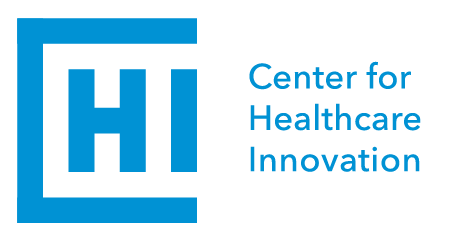Webinar: Engaging Historically Underrepresented Members of the LGBTQ Community in Clinical Trials
Thursday, November 17, 2022 | 11 AM - 12 PM CST
PART 9 OF CHI’S 10-PART SERIES: FROM RESEARCHER TO PATIENT - MAKING CLINICAL TRIALS MORE DIVERSE
This educational program will explore strategies to engage members of LGBTQ communities for participation in clinical trials. The discussion will focus on best practices for patient-centered engagement that can result in better clinical trial patient recruitment and retention. According to the Human Rights Campaign Foundation (HRC), approximately 20 million adults, or 8% of the U.S. population, identified as lesbian, gay, bisexual, transgender, and queer/questioning (LGBTQ) on the 2020 U.S. Census Bureau’s Household Pulse Survey. The LGBTQ community comprises an increasingly diverse group with unique health needs that remain underserved and understudied, resulting in health disparities. In the oncology space, LGBTQ individuals have lower rates of cancer screening, higher rates of anal and cervical cancer, and greater breast cancer mortality. Continued underrepresentation in clinical trials limits the generation of clinical data that is essential for developing effective treatments for LGBTQ patients. An analysis conducted by the American Association for Cancer Research revealed that out of 348 sexual and gender minority studies funded by the National Institutes of Health (NIH) in 2018, less than 8% focused on cancer. Furthermore, quantifying LGBTQ representation in cancer drug trials is impeded by inconsistent data collection practices for sexual orientation and gender identity (SOGI) demographics. In a survey of 53 NCI Community Oncology Research Program (NCORP) practice groups, only 24% routinely collected sexual orientation data. Common barriers that are unique to LGBTQ communities include mistrust and/or lack of understanding of the clinical trials process, fears of exploitation, confidentiality, and study design concerns. Strategies for addressing these barriers must start with engaging community members and advocacy groups to provide input on research design, cultural competency training for research staff, and research education.
Series Host
Dr. Neelum Aggarwal, MD
Professor, Department of Neurological Sciences, Rush Alzheimer's Disease Center at Rush University Medical Center
Dr. Neelum T. Aggarwal, MD, is the Chief Diversity Officer at American Medical Women’s Association and Associate Professor, Departments of Neurological Sciences and the Rush Alzheimer's Disease Center at Rush University Medical Center. She is the Senior Neurologist for the Rush Alzheimer’s Disease Center (RADC), Research Director at the Rush Heart Center for Women, and serves as the Principal Investigator and Site Principal Investigator for multiple NIA funded research studies and consortia led clinical trials. Her work focuses on how sex, gender and social determinants of health are associated with risk, detection and treatment of cognitive changes associated with dementia. Dr. Aggarwal is a long-standing voice for community based research, clinical trial participation, public health initiatives, both in Chicago and nationally. She serves as the Chief Diversity and Inclusion Officer for the American Medical Women’s Association (AMWA), and was past chair of the Governing Council of the American Medical Association- Women's Physician Section.
Currently, she co chairs the Inclusion, Diversity and Education in Alzheimer's Disease - Outreach and Policy subcommittee and the Advisory Group on Risk Evidence Education for Dementia. As the Strategic Advisor for the Science Runway, a Chicago Innovation Mentor (CIM) and past National Chair for the Women in Bio Mentoring, Advisors and Peers Committee, she is uniquely positioned to work with diverse groups of colleagues, mentor and sponsor women and men in the medical, life sciences and STEM sectors. She completed her medical degree from the Rosalind Franklin University - Chicago Medical School, completed her neurology residency at Henry Ford Hospital in Detroit, Michigan, and completed an aging and neurodegenerative disorders fellowship at the Rush Alzheimer’s Disease Center.
Mr. Donald Bell
Ambassador for the PRIDEnet Study, Stanford University
Donald M Bell (he, him, his) identifies as a 73 year old single, cisgender, profeminist, gay or SGL man of African, Indigenous, and Scots-Irish roots. Don is a third-generation native-born Chicagoan, Southsider, and lifelong White Sox fan.
He is a retired professional in Higher Education Administration/Student Affairs; certified in HIV/AIDS counseling, health education, and outreach; and IDCFS Social Worker. Now at the end of a long hiatus he plans to re-enter the work field in the area of Diversity, Equity, and Inclusion. He has become a recognized resource in the area of aging, in general, and LGBT+ aging in particular. He often presents on those and related intersectional social justice issues.
Don currently serves as an Ambassador for the PRIDEnet Study based at Stanford University and the All of Us Research Program of the National Institutes of Health.
Mr. Christopher Cannon, MPH
Director of Clinical Trial Operations-Mid-Atlantic Region, Javara
Christopher M. Cannon (he/his) is an out gay man and is the new Director of Clinical Operations-Mid-Atlantic Region for Javara. Javara is the leading Integrated Clinical Research Organization (IRO), partnering with large healthcare organizations to deliver clinical trial access at the point of care. Prior to his new role, Christopher was the Director of Research Operations at Whitman-Walker Institute. He has a total of15 years of clinical trial research work focused on HIV/AIDS, LGBTQ health, incarceration, and substance use and has co-authored numerous papers on these topics. His most recent work has specifically focused on transgender women’s health. Christopher lives in Washington, DC with his partner, but was raised and educated in Connecticut and earned his Master of Public Health in 2009 from Southern Connecticut State University, while working full-time as a research coordinator at Yale University School of Medicine in New Haven, CT. Christopher believes that clinical trial research is public health and must be more inclusive, which means we must do a better job in educating all communities in the value and need of clinical trial research.
Mr. Darryl Mitteldorf, LCSW
Founder, Malecare
Director, National LGBT Cancer Project - Out With Cancer
I am a social worker, researcher and nonprofit administrator, specializing in psycho-oncology. As a clinician, I have maintained a private practice from 1997 through 2017, providing individual psychotherapy with adults diagnosed with cancer. Since 1997 to the present, I provided one to three weekly psycho-social support groups for men diagnosed with prostate cancer. It is widely believed that I have conducted more prostate cancer support groups than anyone, anywhere.
In 1997, I began studying gay, bisexual and other men who have sex with men (GBM), who are diagnosed with prostate cancer. It is widely believed that I am the first clinician and researcher to use the terms “LGBT psycho-oncology” and “Gay psycho-oncology.” I am also known for having conducted the very first GBM prostate cancer support group.
In 1998, I formed a nonprofit organization for the psycho-social support and advocacy of GBM diagnosed with prostate cancer, called Malecare. Today, Malecare has grown to become a multi-national nonprofit organization that provides resources, support and capacity building in the United States, several countries in Europe and Australia. My personal projects at Malecare include development of the world’s first crowdfunding platform for cancer research, “Start A Cure,” a psycho-social support program for GBM diagnosed with prostate cancer, several research projects focused on the quality of life of GBM diagnosed with prostate cancer, and a mobile app, Cancergraph, designed to collect real time quality of life data.
In 2005, I founded the world’s first cancer patient support and advocacy nonprofit to focus entirely on Lesbian, Gay, Bisexual and Transgender patients, The National LGBT Cancer Project.
In 2013, I invented a nuclear medical device designed to provide quality assurance for Intensity Modulated Radiation Therapy. I was granted a patent, #9,168,002 for this innovative device and method on October 27, 2015. I currently have a patent pending on an innovative method for collecting real time quality of life data.
I have a long history of research collaboration with Dr. Rosser. Most recently, in 2017 I became a co- investigator on Dr. Rosser’s NIH-funded R01 Restore study in which I participate in all aims of the study and write manuscripts related to the experiences of GBM with prostate cancer. Prior to that, in 2014, I became a consultant on the Restore study, an NCI-funded R21 awarded study regarding the effects of prostate cancer in gay and bisexual men (PI: Rosser) and. An additional collaboration I have with a fellow co-investigator was as consultant on a pilot grant from the American Cancer Society to study partners of gay and bisexual men and their caregivers (PI: Capistrant).
My co-investigator role in this proposed study is to co-lead recruitment efforts.
Ms. Rebecca Vest, CCRC, CPhT
Founding Member and Vice President, Unicorn Family Guild (Seattle Children’s Hospital/Adolescent Medicine Gender Clinic)
Rebecca Vest (She/Her)is a Clinical Research Associate/Certified Clinical Research Coordinator in the Seattle, WA area with over 20 years of experience and expertise. She is a Founding Member and Vice President of the Unicorn Family Guild (Seattle Children’s Hospital/Adolescent Medicine Gender Clinic). Rebecca is also a Patient Advisor for Seattle Cancer Care Alliance and has been on numerous Diversity panels, including UW/Seattle Cancer Care Alliance Pride Panel and Affirmation International Symposium Panels. She is a Social Justice Activist for the LGBTQ+ community. Rebecca has worked with individuals and study participants from all walks of life, and values diversity in life as well as in the research/academic field. She loves working with people directly and respects each person’s individual journey.
IN PARTNERSHIP WITH
Related Content













